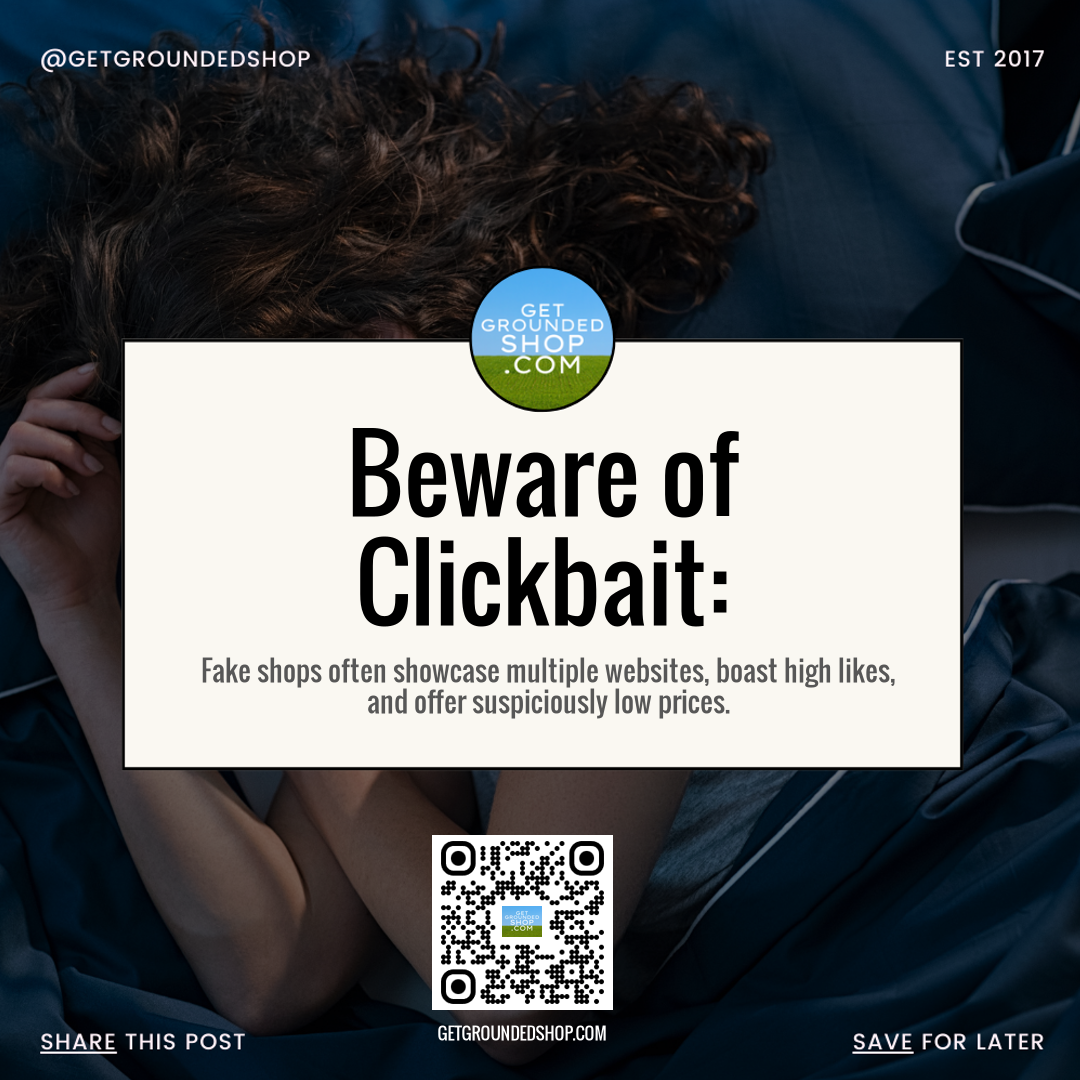
Beware of Clickbait: Spotting Fake Shops Online
In today’s digital landscape, online shopping has become a staple for many. However, with the convenience of purchasing goods at our fingertips comes the risk of falling prey to clickbait and fraudulent websites. Fake shops often showcase multiple websites, boast high likes, and offer suspiciously low prices, luring unsuspecting consumers into a web of deceit. In this blog, we will explore how to identify these fraudulent sites and protect yourself from scams.
Understanding Clickbait and Its Dangers
Clickbait refers to misleading or sensationalized content designed to attract clicks and views. In the context of online shopping, clickbait can manifest as advertisements for fake shops that promise unbelievable deals and discounts. These shops may appear legitimate at first glance, but they often use deceptive tactics to entice customers.
Red Flags of Fake Shops
When browsing the internet, it's crucial to remain vigilant and recognize the warning signs of a fake shop. Here are some common red flags to watch out for:
1. Multiple Websites with Similar Designs
Fake shops often create multiple websites to reach a broader audience. These sites typically share similar layouts, product offerings, and contact information. If you notice several websites selling the same products with identical designs, it’s a strong indication that they might be linked to a scam.
2. Overwhelmingly Positive Reviews
While positive reviews can be a good indicator of a trustworthy site, fake shops often manipulate this by showcasing a plethora of inflated reviews. Be cautious if you see an abundance of five-star ratings without any critical feedback. Genuine customer reviews are usually a mix of positive and negative experiences. Additionally, check for user-generated reviews on independent platforms rather than relying solely on those displayed on the shop's website.
3. Suspiciously Low Prices
One of the most enticing aspects of online shopping is snagging a great deal. However, if a price seems too good to be true, it probably is. Fake shops often lure customers in with rock-bottom prices that undercut competitors significantly. If you encounter items at an unbelievable discount, take a moment to research the product and compare prices across reputable retailers.
Protecting Yourself from Clickbait Scams
Now that you know how to spot a fake shop, let’s discuss some strategies to protect yourself from these scams:
1. Research the Website
Before making a purchase, conduct thorough research on the website. Look for reviews from independent sources and check the store's reputation on consumer protection sites. A quick Google search can reveal whether others have encountered issues with the shop.
2. Verify Contact Information
Legitimate businesses provide clear and accessible contact information. If a shop lacks a physical address, phone number, or email address, it might be a red flag. Reach out to them with questions; if you receive vague or unhelpful responses, consider it a warning sign.
3. Check for HTTPS Security
Always ensure that the website uses HTTPS rather than HTTP. The 'S' indicates that the site has a secure connection, which is especially important when entering personal or payment information. Look for a padlock icon in the address bar before proceeding with your purchase.
4. Use Trusted Payment Methods
When shopping online, opt for trusted payment methods like credit cards or payment services such as PayPal. These options often provide buyer protection, allowing you to dispute charges if something goes wrong. Avoid using wire transfers or other non-reversible payment methods when shopping from unfamiliar websites.
Report Suspicious Activity
If you encounter a fake shop, it’s essential to report it. Most countries have consumer protection agencies that handle online fraud. By reporting suspicious websites, you help protect other consumers from falling victim to the same scams.
Conclusion
As online shopping continues to grow, so does the prevalence of clickbait and fraudulent shops. By being aware of the tactics used by scammers and implementing protective measures, you can shop confidently and avoid falling victim to these deceptive practices. Remember, if a deal seems too good to be true, it probably is. Stay vigilant, conduct thorough research, and prioritize your safety while shopping online.
For additional insights on identifying fake products, especially in the realm of grounding sheets, check out The Truth About Fake Grounding Sheets. This article provides valuable tips on recognizing counterfeit products, emphasizing the importance of authenticity and the potential health risks associated with using ineffective grounding sheets.